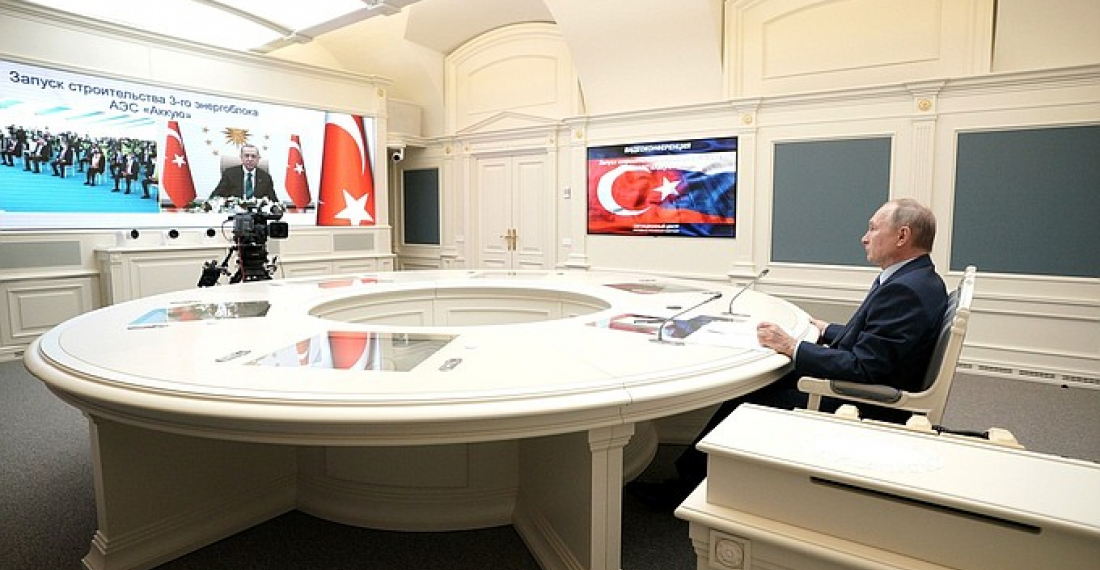The construction of the Akkuyu Nuclear Power Plant (NPP) will significantly enhance Turkey’s energy security and help advance the country’s further economic growth as well as provide consumers with cheap and environmentally friendly electric power, Russian President Vladimir Putin stated at a ceremony marking the launch of construction of the third unit of the NPP in Turkey’s Mersin Province on Wednesday (10 March). The construction of the last facility, unit four, is due to kick off as early as 2022, so Turkey’s first NPP should start working by 2023, the 100th anniversary of the republic’s foundation.
Experts told the Russian newspaper Izvestia that the project is important in economic, environmental and political terms. It actually strengthens relations between Moscow and Ankara and also boosts Russia’s positions in the region.
The Turkish leadership has huge energy plans, and they boil down to two tracks: reducing energy imports and becoming a vital hub for Europe, said Deputy Director General of the Institute of National Energy Alexander Frolov. According to him, the plant’s construction will help achieve both these goals. "As for Russia, the Akkuyu NPP is another successful international project in the field of nuclear energy. Our country is one of very few world leaders in this area," the expert said.
Deputy Director of Alpari’s Analytical Department Natalya Milchakova notes that Akkuyu’s construction will help Turkey achieve several objectives: first to increase its share of electricity produced from environmentally friendly sources and decrease the share of coal, and second, to reduce dependence on importing coal from third countries. "Russia is helping Turkey as a rapidly-developing country to meet its growing demand for energy resources. From economic and environmental perspectives, this co-operation benefits both sides. Rosatom offers safe energy reactors, which have all the required certification from the International Atomic Energy Agency, and since Rosatom is the key investor in the project, its construction is basically not being paid for by Turkish taxpayers," she explained.
In political terms, the Akkuyu NPP project is a symbol of common interests and friendly relations like the joint gas pipeline TurkStream. Strengthening economic and military co-operation with a NATO state certainly boosts Russia’s positions in the region. "In general, Moscow keeps bolstering its authority in the region and is increasing its influence," said leading analyst of QBF investment company Oleg Bogdanov.






